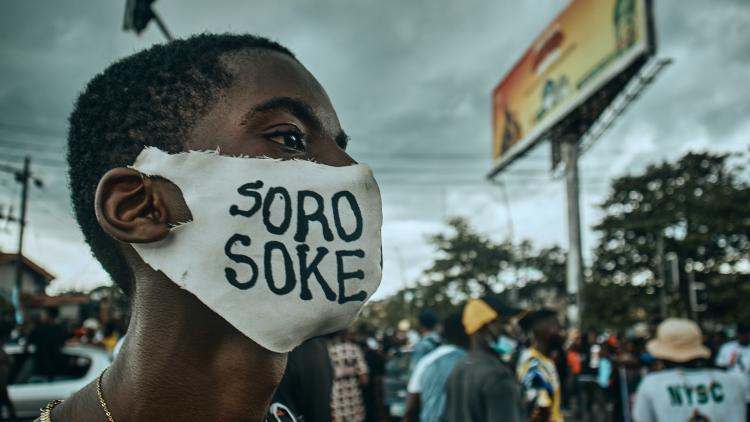Professor Hiro Aragaki

Key information
- Roles
- School of Law, Gender and Media Professorial Research Associate SOAS Arbitration and Dispute Resolution Centre Member
- Department
- School of Law, Gender and Media
- Qualifications
- B.A. (Yale), Ph.D (Cantab), J.D. (Stanford)
- Email address
- ha28@soas.ac.uk
Biography
Hiro Aragaki is Professor of Law at Loyola Law School in Los Angeles, where he teaches and writes in the areas of negotiation, mediation, arbitration, contract law, comparative law, and law and development. Prior to joining Loyola, Professor Aragaki taught at Fordham Business School in New York and practiced for ten years at international law firms. In addition to his academic work, he has served as an arbitrator and mediator since 2001, trained judges and lawyers in ADR, and provided dispute systems design and court reform advice both nationally and internationally. He was most recently retained by the World Bank to train lawyers and judges for the first court-connected mediation program at the Commercial Court in Monrovia, Liberia, and is an academic advisor to the Indian Ministry of Justice in its efforts to draft a new mediation law.
Links
Publications
Articles
Aragaki, Hiro (2018) ‘The Metaphysics of Arbitration: A Reply to Hensler and Khatam’. Nevada Law Journal (18), pp. 541-472
Aragaki, Hiro (2016) ‘Arbitration: Creature of Contract, Pillar of Procedure’. Penn State Yearbook on Arbitration and Mediation (8), pp. 2-19
Aragaki, Hiro (2016) ‘Constructions of Arbitration’s Informalism: Autonomy, Efficiency, and Justice’. Journal of Dispute Resolution (2016), pp. 141-169
Aragaki, Hiro (2016) ‘Does Rigorously Enforcing Arbitration Agreements Promote “Autonomy”?’, Indiana Law Journal (91), pp. 1143-1189
Aragaki, Hiro (2014) ‘The Federal Arbitration Act as Procedural Reform’. New York University Law Review (89), pp. 1939-2026
Aragaki, Hiro (2012) ‘AT&T Mobility v. Concepcion and the Antidiscrimination Theory of Federal Arbitration Act Preemption’. Penn State Yearbook on Arbitration and Mediation (4), pp. 39-80
Aragaki, Hiro (2011) ‘Equal Opportunity for Arbitration’. UCLA Law Review (58), pp. 1189-1255
Aragaki, Hiro (2011) ‘Arbitration’s Suspect Status’. University of Pennsylvania Law Review (159), pp. 1233-1304
Aragaki, Hiro (2009) ‘The Mess of Manifest Disregard’. Yale Law Journal Online (119), pp. 1-14
Aragaki, Hiro (2009) ‘Deliberative Democracy as Dispute Resolution? Conflict, Interests, and Reasons’. Ohio State Journal on Dispute Resolution (24), pp. 406-478
Book chapters
Aragaki, Hiro (2018) ‘Arbitration Reform in India: Challenges and Opportunities’. In: Gu, Weixia & Reyes, Anselmo, (eds.), A Comparative Study of Arbitration Reforms in the Asia-Pacific. Oxford: Hart Publishing, pp. 221-249
Other
Aragaki, Hiro (2017) ‘Things We Know and Think we Know About BATNA and WATNA’. Indisputably: Linking Dispute Resolution Scholarship, Education, and Practice
Aragaki, Hiro (2015) ‘Commentary on DirecTV v. Imburgia’. Indisputably: Linking Dispute Resolution Scholarship, Education, and Practice
Aragaki, Hiro (2011) ‘Status and contract in AT&T Mobility v. Concepcion’. SCOTUSblog Symposium on Arbitration and the U.S. Supreme Court
Research interests
Research Interests
I am currently working on several projects.
The first is a comparative study of mediation legislation around the world. Several new national mediation laws have recently been enacted or are in the process of being drafted. This study seeks to analyse emerging trends and key differences in approach, to make broader observations about the extent or desirability of harmonization in mediation law worldwide, and to draw out policy implications for future legislative and treaty drafting efforts.
The second is a study of how mediation is developing in India and the types of reform (e.g., top down v. bottom up) necessary to help mediation flourish in a nation with crippling backlogs in the courts. The focus will be on legislative reform, in particular whether Part III of the Arbitration and Conciliation Act should be amended, whether the Supreme Court’s decision in Afcons Infrastructure v. Cherian Varkey should be enacted into legislation, and what other legislative interventions might help encourage the actual practice of mediation in India.
The third is to explore the role of culture in negotiation and dispute settlement. Scholars and practitioners generally agree that an awareness of cross-cultural issues is important, but aside from broad typologies of different cultures (e.g., individualism v. collectivism) by Hofstede et al. and others, the field remains undertheorized. This study seeks to provide a more sophisticated theoretical model that helps locate the precise role of cultural difference in dispute resolution and identifies concrete implications for ADR skills and practice.
- Alternative Dispute Resolution
- Arbitration
- Mediation
- Negotiation
- Comparative Law
- International Law
- Law and Development
- Cross-cultural negotiation/dispute settlement
- ADR in South Asia
- ADR in Africa
- Legislative drafting
- Experiential learning and skills development
- Contracts
- International Business Transactions
- Civil Procedure


